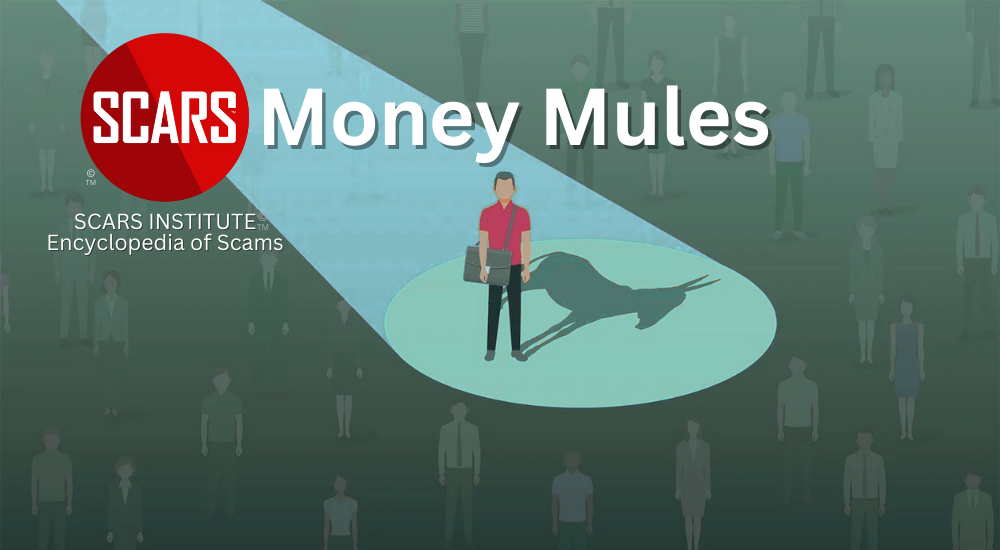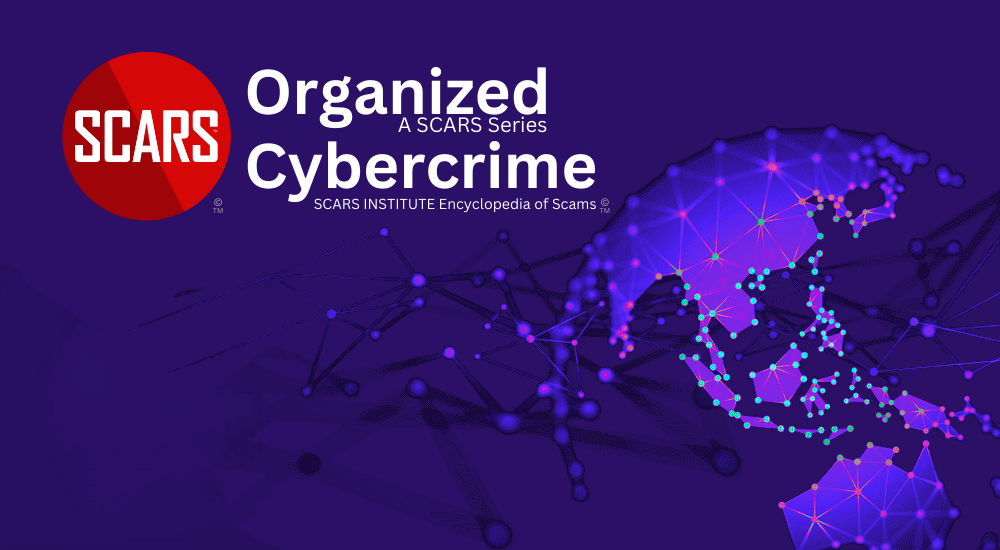
SCARS Institute’s Encyclopedia of Scams™ Published Continuously for 25 Years

Gold Bar Scam/Phone Scams
Government Impersonators Telling Victims to Protect Their Money!
How Scams Work – A SCARS Insight
Author:
• SCARS Institute Enecyclopedia of Scams Editorial Team – Society of Citizens Against Relationship Scams Inc.
Article Abstract
Gold bar scams involve fraudsters posing as federal agents or government officials who deceive victims by claiming their financial assets are at risk due to identity theft.
The scammers convince victims that the only way to protect their money is to convert it into gold bars and hand them over to a supposed U.S. Treasury agent for safekeeping while a new Social Security number is issued.
This sophisticated scam exploits trust in authority, fear, and urgency, leading victims to unwittingly give away their assets to criminals. Recognizing the psychological manipulation and cognitive biases at play is crucial to preventing such scams.

Understanding the Gold Bar Scam: How It Works and How to Protect Yourself
The Gold Bar Scam is a sophisticated and deceptive scheme, typically a phone scam, that begins with a seemingly innocent phone call.
The person on the other end of the line claims to be a federal agent or other government official, often from a well-known government agency such as the FBI, IRS, or the Social Security Administration. This scam has been targeting individuals across the U.S.A. & Canada and its effects can be financially devastating.
How the Gold Bar Scam Works
Step 1
The scam starts when you receive a phone call from someone claiming to be a federal agent. This person may inform you that your identity has been stolen and that your personal information is being used in illegal activities. The caller typically sounds very official, often providing fake badge numbers, case numbers, and other details to make the scam seem more credible.
Step 2
Once they have your attention, the scammer will tell you that your bank accounts are at risk and that the only way to protect your money is to convert it into gold bars. They will often emphasize the urgency of the situation, making it seem like you have no other option but to follow their instructions immediately. They may also tell you that this is a temporary measure while they work on issuing you a new Social Security number to prevent further identity theft.
Step 3
To add to the illusion, the scammer may bring in other people during the call who pose as representatives from different government agencies. These individuals will back up the story and provide additional “evidence” that your identity is at risk and that converting your money to gold is the safest option.
Step 4
After convincing you to purchase gold bars, the scammer will instruct you to meet a so-called U.S. Treasury agent to hand over the gold. They may assure you that this agent will keep the gold safe while the government works on resolving the identity theft issue. In reality, the person you meet is another scammer who will take the gold and disappear, leaving you with nothing.
Red Flags to Watch Out For
Unsolicited Calls from “Government Agents”: Government agencies rarely call individuals out of the blue, especially with urgent demands to move money.
Requests for Gold or Other Unusual Payment Methods: No legitimate government agency will ever ask you to convert your money into gold or any other physical asset. This is a major red flag.
Pressure and Urgency: Scammers often create a sense of urgency to prevent you from thinking clearly. They may threaten you with arrest, legal action, or financial ruin if you don’t comply immediately.
Multiple “Agents” on the Call: If multiple people join the call, all claiming to be from different government agencies, this is likely a coordinated scam.
Instructions to Meet a Stranger: Being asked to meet someone you don’t know to hand over valuable items like gold bars is a clear sign of a scam.
Cognitive Biases & Manipulation Techniques Used in the Gold Bar Scam
The Gold Bar Scam relies heavily on cognitive biases and psychological manipulation techniques to convince victims to take actions that they would otherwise recognize as irrational or dangerous. Here are some of the key cognitive biases and psychological tactics employed in this scam:
Authority Bias (Cognitive Bias)
What It Is: Authority bias is the tendency to attribute greater accuracy or truth to the opinion of an authority figure and to be more influenced by that opinion.
How It’s Used: The scammers pretend to be federal agents or representatives from well-known government agencies, exploiting the victim’s tendency to trust and obey authority figures without questioning their legitimacy.
Scarcity and Urgency (Cognitive Bias)
What It Is: Scarcity is the perception that something is in limited supply or time is running out, leading people to act quickly to avoid missing out. Urgency intensifies this by creating pressure to act immediately.
How It’s Used: The scammers create a sense of urgency by claiming that the victim’s money is at immediate risk and that the only way to protect it is to act quickly. This prevents the victim from taking time to think things through or consult with others.
Fear and Anxiety Induction (Psychological Manipulation)
What It Is: This technique involves inducing a state of fear or anxiety in the victim, making them more likely to act irrationally and comply with the scammer’s demands.
How It’s Used: The scam begins by alarming the victim with a story about identity theft, convincing them that their financial security is at risk. The fear of losing their money pushes the victim to follow the scammer’s instructions without considering alternative actions.
Commitment and Consistency (Psychological Manipulation)
What It Is: This bias refers to the human desire to appear consistent in actions and decisions, leading people to follow through with something once they have committed to it, even if it becomes increasingly irrational.
How It’s Used: Once the victim agrees to the initial steps, such as purchasing gold bars, they are more likely to continue complying with the scammer’s demands to remain consistent with their previous actions, even when those actions escalate.
Social Proof (Cognitive Bias)
What It Is: Social proof is the psychological tendency to look to the behavior of others to guide one’s own actions, especially in uncertain situations.
How It’s Used: Scammers may mention that others have successfully protected their money using the same method or may imply that this is a common practice. This makes the victim feel that converting money into gold is a normal and effective way to safeguard their assets.
Reciprocity (Cognitive Bias)
What It Is: Reciprocity is the social norm of responding to a positive action with another positive action, creating a sense of obligation.
How It’s Used: The scammer might offer to “help” the victim by providing insider information or a special service (like issuing a new Social Security number) in return for the victim’s cooperation, making the victim feel indebted to comply.
Illusion of Control (Cognitive Bias)
What It Is: The illusion of control bias is the tendency for people to overestimate their ability to control events, especially those that are actually random or uncontrollable.
How It’s Used: Scammers convince the victim that by converting their money to gold and handing it over to a “government agent,” they are taking control of the situation and protecting their assets, when in reality, they are giving away control.
Confirmation Bias (Cognitive Bias)
What It Is: Confirmation bias is the tendency to search for, interpret, and remember information in a way that confirms one’s pre-existing beliefs.
How It’s Used: Victims might already be concerned about identity theft or financial security, so they are more likely to believe the scammer’s story. The scammer reinforces these concerns, making the victim less likely to question the authenticity of the scam.
Foot-in-the-Door Technique (Psychological Manipulation)
What It Is: This technique involves getting a person to agree to a small request first, which increases the likelihood that they will agree to a larger request later.
How It’s Used: The scam might start with simple requests, like confirming personal information, and then escalate to the much larger request of purchasing and handing over gold bars.
Isolation (Psychological Manipulation)
What It Is: Isolation is a psychological technique where the victim is cut off from external advice or support, making them more vulnerable to manipulation.
How It’s Used: The scammer may encourage the victim to keep the situation secret, claiming that it’s a sensitive government operation. This isolates the victim from seeking advice from friends, family, or professionals who could help them see through the scam.
The Gold Bar Scam is a prime example of how cognitive biases and psychological manipulation can be exploited to deceive even well-meaning, rational individuals. By understanding these tactics, potential victims can be better prepared to recognize and resist scams, ultimately protecting themselves from financial and emotional harm.
Protecting Yourself from the Gold Bar Scam
Stay Calm: Scammers rely on fear and urgency to push you into making hasty decisions. Take a moment to breathe and think clearly.
Verify the Caller: If you receive a call from someone claiming to be a government agent, hang up and call the agency directly using a verified phone number. Do not use any phone numbers provided by the caller.
Know the Signs: Familiarize yourself with common scam tactics, such as requests for unusual payment methods like gold, gift cards, or wire transfers.
Never Meet Strangers to Hand Over Money or Assets: Legitimate government agencies will never ask you to meet someone to hand over money or valuables.
Report Suspicious Activity: If you believe you have been targeted by a scam, report it to local law enforcement and the Federal Trade Commission (FTC). This can help prevent others from falling victim to the same scam.
Summary
The Gold Bar Scam is a dangerous and deceptive scheme that preys on people’s fears of identity theft and financial ruin. By understanding how the scam works and recognizing the warning signs, you can protect yourself from becoming a victim. Always be cautious when dealing with unsolicited phone calls, especially those that ask for money or valuable assets. Remember, no legitimate government agency will ever ask you to convert your money to gold or meet a stranger to hand it over. Stay informed, stay vigilant, and protect yourself from scams like this.
-/ 30 /-
What do you think about this?
Please share your thoughts in a comment below!
Table of Contents
- Government Impersonators Telling Victims to Protect Their Money!
- Article Abstract
- Understanding the Gold Bar Scam: How It Works and How to Protect Yourself
- How the Gold Bar Scam Works
- Red Flags to Watch Out For
- Cognitive Biases & Manipulation Techniques Used in the Gold Bar Scam
- Protecting Yourself from the Gold Bar Scam
- Summary
LEAVE A COMMENT?
Recent Comments
On Other Articles
- Arwyn Lautenschlager on Love Bombing And How Romance Scam Victims Are Forced To Feel: “I was love bombed to the point that I would do just about anything for the scammer(s). I was told…” Feb 11, 14:24
- on Dani Daniels (Kira Lee Orsag): Another Scammer’s Favorite: “You provide a valuable service! I wish more people knew about it!” Feb 10, 15:05
- on Danielle Delaunay/Danielle Genevieve – Stolen Identity/Stolen Photos – Impersonation Victim UPDATED 2024: “We highly recommend that you simply turn away form the scam and scammers, and focus on the development of a…” Feb 4, 19:47
- on The Art Of Deception: The Fundamental Principals Of Successful Deceptions – 2024: “I experienced many of the deceptive tactics that romance scammers use. I was told various stories of hardship and why…” Feb 4, 15:27
- on Danielle Delaunay/Danielle Genevieve – Stolen Identity/Stolen Photos – Impersonation Victim UPDATED 2024: “Yes, I’m in that exact situation also. “Danielle” has seriously scammed me for 3 years now. “She” (he) doesn’t know…” Feb 4, 14:58
- on An Essay on Justice and Money Recovery – 2026: “you are so right I accidentally clicked on online justice I signed an agreement for 12k upfront but cd only…” Feb 3, 08:16
- on The SCARS Institute Top 50 Celebrity Impersonation Scams – 2025: “Quora has had visits from scammers pretending to be Keanu Reeves and Paul McCartney in 2025 and 2026.” Jan 27, 17:45
- on Scam Victims Should Limit Their Exposure To Scam News & Scammer Photos: “I used to look at scammers photos all the time; however, I don’t feel the need to do it anymore.…” Jan 26, 23:19
- on After A Scam, No One Can Tell You How You Will React: “This article was very informative, my scams happened 5 years ago; however, l do remember several of those emotions and/or…” Jan 23, 17:17
- on Situational Awareness and How Trauma Makes Scam Victims Less Safe – 2024: “I need to be more observant and I am practicing situational awareness. I’m saving this article to remind me of…” Jan 21, 22:55
ARTICLE META
Important Information for New Scam Victims
- Please visit www.ScamVictimsSupport.org – a SCARS Website for New Scam Victims & Sextortion Victims
- Enroll in FREE SCARS Scam Survivor’s School now at www.SCARSeducation.org
- Please visit www.ScamPsychology.org – to more fully understand the psychological concepts involved in scams and scam victim recovery
If you are looking for local trauma counselors please visit counseling.AgainstScams.org or join SCARS for our counseling/therapy benefit: membership.AgainstScams.org
If you need to speak with someone now, you can dial 988 or find phone numbers for crisis hotlines all around the world here: www.opencounseling.com/suicide-hotlines
A Note About Labeling!
We often use the term ‘scam victim’ in our articles, but this is a convenience to help those searching for information in search engines like Google. It is just a convenience and has no deeper meaning. If you have come through such an experience, YOU are a Survivor! It was not your fault. You are not alone! Axios!
A Question of Trust
At the SCARS Institute, we invite you to do your own research on the topics we speak about and publish, Our team investigates the subject being discussed, especially when it comes to understanding the scam victims-survivors experience. You can do Google searches but in many cases, you will have to wade through scientific papers and studies. However, remember that biases and perspectives matter and influence the outcome. Regardless, we encourage you to explore these topics as thoroughly as you can for your own awareness.
Statement About Victim Blaming
SCARS Institute articles examine different aspects of the scam victim experience, as well as those who may have been secondary victims. This work focuses on understanding victimization through the science of victimology, including common psychological and behavioral responses. The purpose is to help victims and survivors understand why these crimes occurred, reduce shame and self-blame, strengthen recovery programs and victim opportunities, and lower the risk of future victimization.
At times, these discussions may sound uncomfortable, overwhelming, or may be mistaken for blame. They are not. Scam victims are never blamed. Our goal is to explain the mechanisms of deception and the human responses that scammers exploit, and the processes that occur after the scam ends, so victims can better understand what happened to them and why it felt convincing at the time, and what the path looks like going forward.
Articles that address the psychology, neurology, physiology, and other characteristics of scams and the victim experience recognize that all people share cognitive and emotional traits that can be manipulated under the right conditions. These characteristics are not flaws. They are normal human functions that criminals deliberately exploit. Victims typically have little awareness of these mechanisms while a scam is unfolding and a very limited ability to control them. Awareness often comes only after the harm has occurred.
By explaining these processes, these articles help victims make sense of their experiences, understand common post-scam reactions, and identify ways to protect themselves moving forward. This knowledge supports recovery by replacing confusion and self-blame with clarity, context, and self-compassion.
Additional educational material on these topics is available at ScamPsychology.org – ScamsNOW.com and other SCARS Institute websites.
Psychology Disclaimer:
All articles about psychology and the human brain on this website are for information & education only
The information provided in this article is intended for educational and self-help purposes only and should not be construed as a substitute for professional therapy or counseling.
While any self-help techniques outlined herein may be beneficial for scam victims seeking to recover from their experience and move towards recovery, it is important to consult with a qualified mental health professional before initiating any course of action. Each individual’s experience and needs are unique, and what works for one person may not be suitable for another.
Additionally, any approach may not be appropriate for individuals with certain pre-existing mental health conditions or trauma histories. It is advisable to seek guidance from a licensed therapist or counselor who can provide personalized support, guidance, and treatment tailored to your specific needs.
If you are experiencing significant distress or emotional difficulties related to a scam or other traumatic event, please consult your doctor or mental health provider for appropriate care and support.
Also read our SCARS Institute Statement about Professional Care for Scam Victims – click here to go to our ScamsNOW.com website.
















Thank you for your comment. You may receive an email to follow up. We never share your data with marketers.